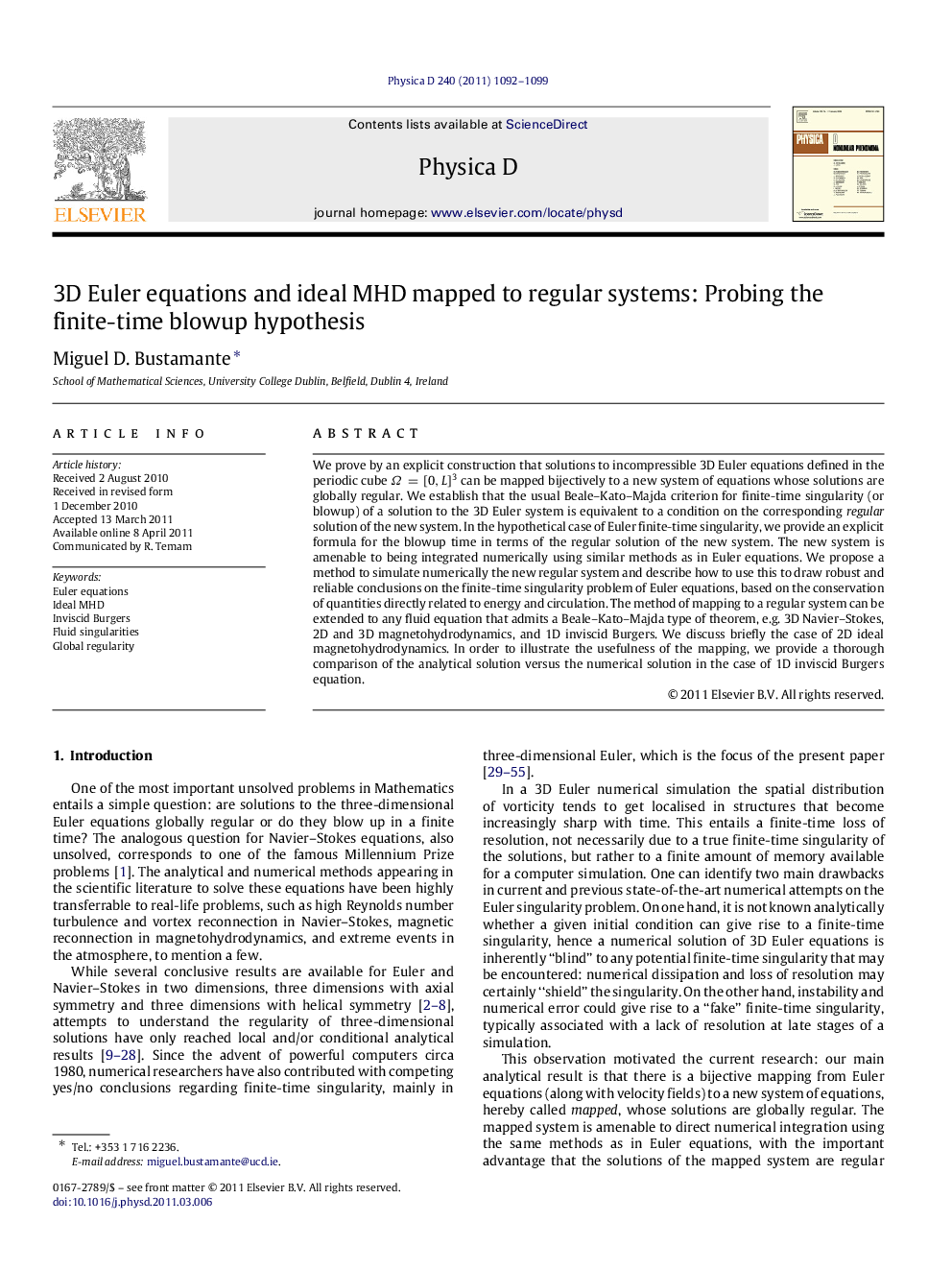| Article ID | Journal | Published Year | Pages | File Type |
|---|---|---|---|---|
| 1899703 | Physica D: Nonlinear Phenomena | 2011 | 8 Pages |
We prove by an explicit construction that solutions to incompressible 3D Euler equations defined in the periodic cube Ω=[0,L]3Ω=[0,L]3 can be mapped bijectively to a new system of equations whose solutions are globally regular. We establish that the usual Beale–Kato–Majda criterion for finite-time singularity (or blowup) of a solution to the 3D Euler system is equivalent to a condition on the corresponding regular solution of the new system. In the hypothetical case of Euler finite-time singularity, we provide an explicit formula for the blowup time in terms of the regular solution of the new system. The new system is amenable to being integrated numerically using similar methods as in Euler equations. We propose a method to simulate numerically the new regular system and describe how to use this to draw robust and reliable conclusions on the finite-time singularity problem of Euler equations, based on the conservation of quantities directly related to energy and circulation. The method of mapping to a regular system can be extended to any fluid equation that admits a Beale–Kato–Majda type of theorem, e.g. 3D Navier–Stokes, 2D and 3D magnetohydrodynamics, and 1D inviscid Burgers. We discuss briefly the case of 2D ideal magnetohydrodynamics. In order to illustrate the usefulness of the mapping, we provide a thorough comparison of the analytical solution versus the numerical solution in the case of 1D inviscid Burgers equation.
► We establish a bijective mapping from 3D Euler equations to a globally regular system. ► The usual Beale–Kato–Majda (BKM) criterion for finite-time blowup is equivalent to a condition on the regular system. ► We provide an explicit formula for the blowup time in terms of the regular system. ► The new system is amenable to being integrated numerically using similar methods as in Euler equations. ► The method of mapping to a regular system can be extended to any fluid equation that admits a BKM type of theorem.
